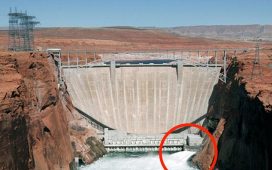Months of hype for Apple TV+ and the many A-list names attached has dramatically dissipated this week as reviews have revealed a ragtag bunch of half-formed shows that have replaced big ideas with big production values. It might therefore be faint praise to label glossy space race drama For All Mankind as the best of the bunch but it’s adequately entertaining and the first three episodes hint at the show it might become, something far better than it currently is.
The retcon setup imagines what would have happened if Russia had won the space race and if the first man on the moon had used his first words to herald “the Marxist, Leninist way of life”. It opens with a nifty fakeout but as alternate history conceits go, it’s hardly The Man in the High Castle, and it does take Battlestar Galactica creator Ronald D Moore considerable time to sell us on the worthiness of his idea. For the first episode, it’s curious rather than compelling and even a bit smug at times with its strange rewriting of history, casually dropping in the historical aftereffects (in this universe, the Chappaquiddick incident no longer happened).
Initially, the focus is on Edward Baldwin (Joel Kinnaman), a fictional astronaut whose career is indelibly impacted by the Russians’ progress. He was moments from landing on the moon before, circling so close he could see the surface, but his superiors pulled him away, not ready yet to make such a big step. In a drunken rant, he tells a journalist his true feelings about their cowardice and gets demoted as a result. As the show continues there’s an expansion in perspective, and this is when it starts to get interesting, as the more intriguing results of the shifted universe start to play out. Russian’s second manned mission places a female astronaut on the moon leading Richard Nixon to demand that the US do the same.
So we move on from disappointed straight white men to inspired white and black women while also looking at the rise of female employees at Nasa on the ground. This allows for some less conventional tensions to arise in a setting such as this, with one woman trying to juggle her life as a mother with a newfound career as an astronaut while also dealing with the men around her who don’t give her the credit she deserves. With the space race heating up, there’s also desire from Nixon to build a military base on the moon, recalling Trump’s space force, and the narrative leaps between the various strands and characters, Moore juggling yet more balls with each episode. Sometimes it’s managed with slickness and other times, it feels more scattershot, the lack of a clear protagonist, or at least a character who has given enough time to truly come to life, starting to make it feel like a collection of ideas and scenes rather than a cohesive drama.
While the rousing speeches don’t really rouse, the production design is a handsome distraction and even though it might not exactly leap off the screen, Moore’s storytelling is relatively well-honed, meaning that it’s never less than watchable. As well as Battlestar Galactica, he has also been behind the long-running fantasy hit Outlander, and he knows enough to make this mostly work, a solidly, blandly entertaining drama that will be no one’s favourite of the year while also avoiding being anyone’s worst. Those with encyclopedic knowledge of Nasa in the late 60s will probably get the most out of this while the rest of mankind will just be happy they’re watching this and not one of Apple’s other shows …














